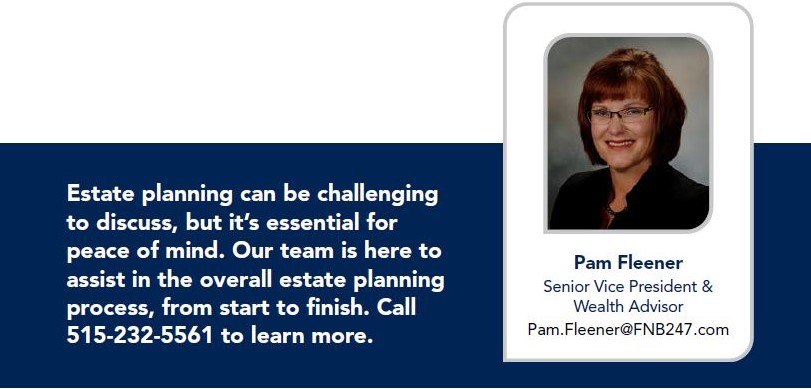Building Blocks of Estate Planning
Posted
on Wednesday, July 31, 2024
in
FInancial Management & Trust Services
What is Estate Planning?
It’s not just about taxes and wills. In its broadest sense, estate planning is the process of accumulating, managing, and distributing property over the course of your lifetime. The goal is to protect your assets during your life and distribute them according to your wishes when you pass away.
Estate Panning is unique to each individual. It’s an area where professional legal and tax advice is critical. A plan that makes sense for me might not make sense for you—You may or may not have children, own your own business, have worked for numerous companies with different 401(k) plans, etc. Everyone has a unique situation and requires a customized estate plan.
Three Building Blocks of a Successful Estate Plan
1. Last Will and Testament – Your will determines how your property is distributed when you pass away. If you have minor children, a will provides confidence that your children will be cared for as you wish. When someone passes away without a will, it’s called Intestate. Through Intestate Succession, state law determines the division of property and assets. The state may not necessarily divide your assets the way you would prefer, so having a will is important.
2. Living Trusts – Also known as revocable trusts, these can be created to hold title to your assets during your lifetime and to distribute your assets after you pass away. Assets placed in a trust won’t need to go through probate, and you can designate a trustee to manage your estate after you’ve passed—a beneficial arrangement if your heirs are minor children or adults who are unprepared to handle a large inheritance.
3. Durable Power of Attorney – A power of attorney is a document that gives a trusted person specific powers over different aspects of your life. This person has the authority to act on your behalf in the event you are unable to act for yourself or in the event you do not want to act for yourself. “Durable” means it stays in force even if something happens to you.
There are different kinds of powers:
- Financial: Provides the ability to handle financial affairs.
- Health Care: Names a person to make health care decisions for you if you become incapacitated.
4. Living Will – This document details your wishes for medical treatment in circumstances where you are unable to give informed consent.
It’s important to keep your will or trust current; any time you have a major life change—marriage, divorce, birth, death, a new job—make sure your will still reflects your needs. You can modify your will as many times as you need. A modification to a will is called a Codicil. A Codicil is an easy way to make changes to your will without rewriting the entire document.
